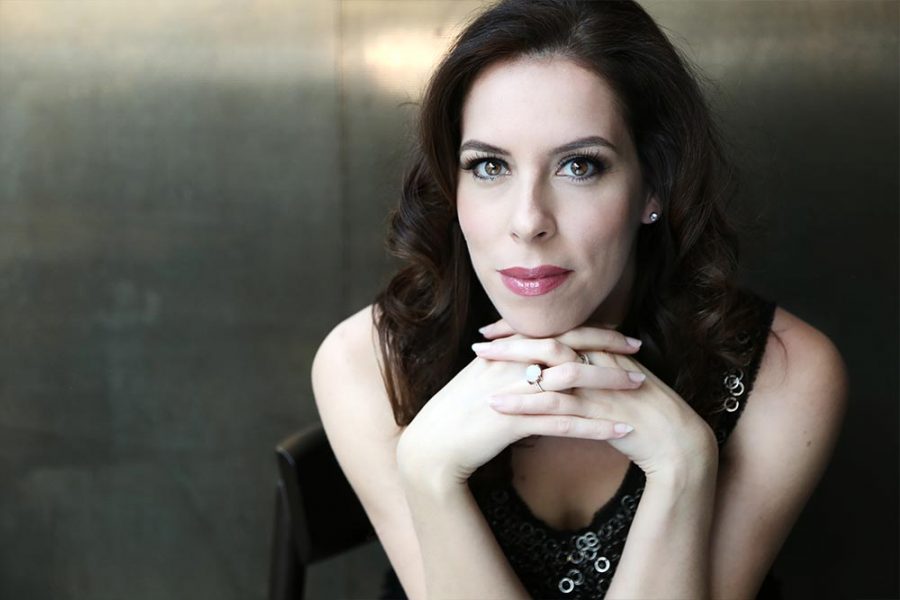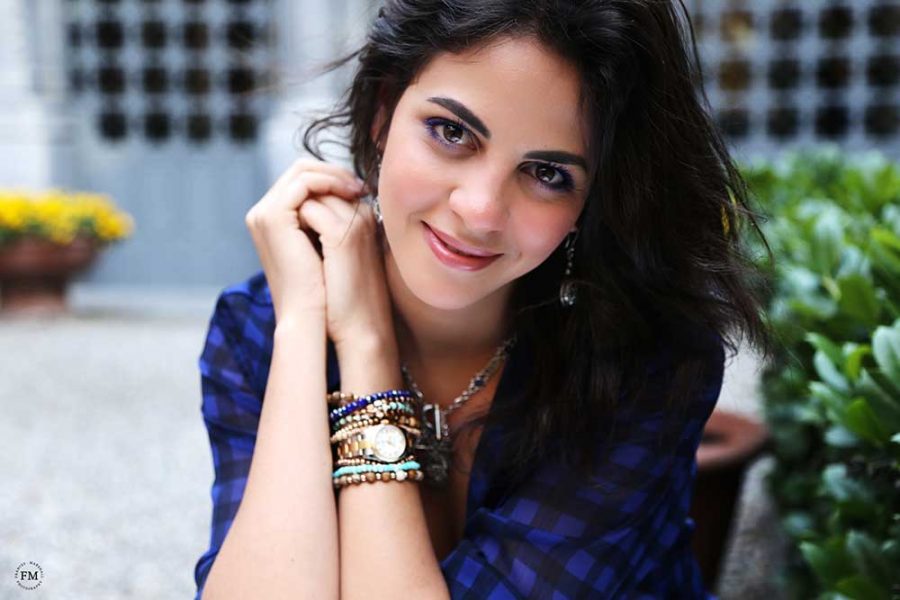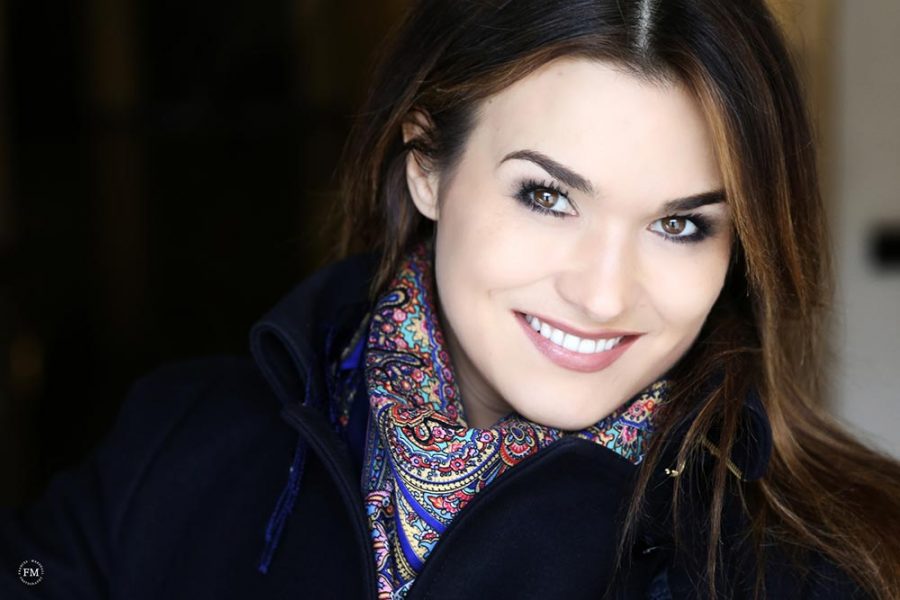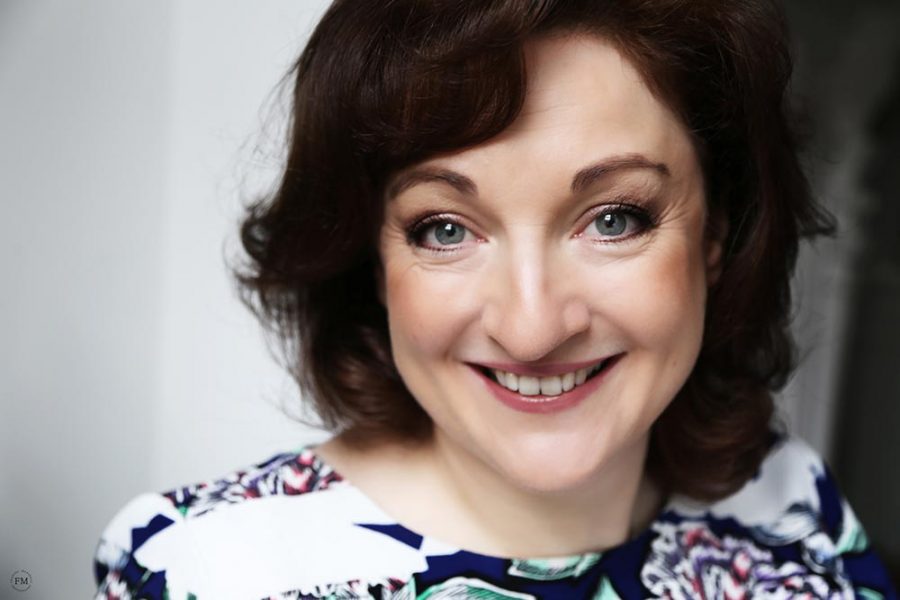Fiery Vulnerability with Ermonela Jaho

January 2019
Interview and photos by
Frances Marshall
Share this article
Constantly compared to Callas, Ermonela Jaho is the perfect balance of determination and vulnerability. Her capacity to become the complete embodiment of her characters has allowed Jaho to present ‘emotionally shattering’ interpretations of the most prolific dramatic heroines.
We met with the Albanian lyric soprano in London, to discuss her upcoming La Traviata at the Royal Opera House and how growing up in a communist state helped her to find her inner stage animal.
I knew nothing about opera, but seeing it for the first time was like falling in love, I don’t know how to explain it. A door opened in that moment and my decision was made."

What is your earliest musical memory?
I was five years old singing with the kids in a festival in Tirana – it was my first time on the stage. When I was 14 I went to my first opera and it was La Traviata. I knew nothing about opera, but seeing it for the first time was like falling in love, I don’t know how to explain it. A door opened in that moment and my decision was made.
Did it feel like your life began there and then?
Absolutely, I turned to my brother and in the most mediterranean way I said ‘I am going to die, if I don’t sing Traviata’. I’ve now done it over 250 times, it’s still a dream. I felt a complete freedom in singing and I felt more comfortable than I did in real life.
Do you find your performances change because of your own life experience?
Completely. My emotions evolve along with the characters. My first La Traviata felt like the movie Rocky. I was just on 100% capacity and at the end I was exhausted and even today if I watch that performance, I’m exhausted. When you’re young you want to prove everything. Everytime I sing the role I always find something new. You’re on stage singing the life of someone else, but still they are feeling human feelings so you will find them in yourself.
You have an ability to give so much on stage, how do you avoid burnout?
You have to connect with people and that connection is deep in your soul and the music is the language of the soul. Sometimes we’re afraid to be vulnerable, but on stage you have to be. For me, maybe it was my expression of freedom, I feel free when I sing and this is where the energy comes from. When I feel like this, there’s no need to justify anything. Of course I didn’t want to feel judged, but it’s unavoidable in front of thousands of people. You’re always going to be judged on how you sang that passaggio or whatever, but emotionally you need to dig inside of yourself or you will never connect with people. This is the art. If you control everything because you’re afraid of burnout, what’s the point? Your soul is naked on stage, you must give everything.
How do you let go?
I never cared about presenting the perfect note to anybody. Singing has always brought me to another dimension and everytime I’m on stage I go into that space – it’s painful, but necessary. My performances are never perfect, because I don’t prioritise perfection. Emotion and joy have no intonation. Of course, the composers give you the notes and structure to sing, but the bottom line is to communicate the feelings.
If I don’t go to that deep place I’m never going to connect with people and the public will detect the fakeness. Even if you have a beautiful voice with a great technique, after 10-15 minutes you need something else. Vulnerability connects people and it can make you feel weak, but that weakness is at the strongest point when you let go. That’s why we go to the theatre, for the catharsis.

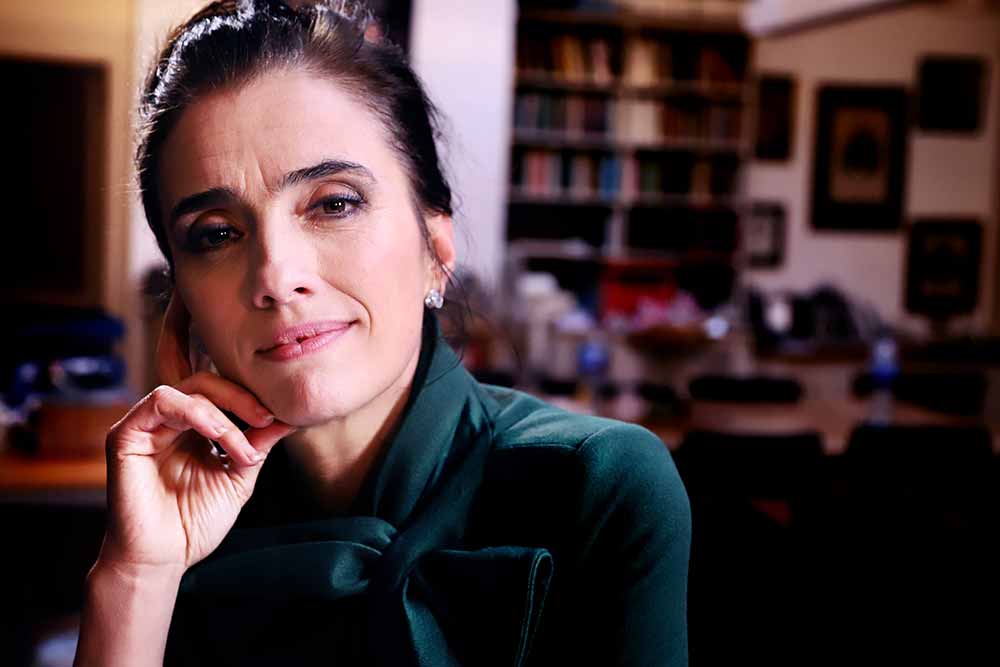


My mind has never respected barriers. I had to trust my dream, my voice, and my intentions. Everything else is superficial."

Do you believe vulnerability is the key to success in any career?
We live in a very judgemental society, and of course you have to know your craft and be prepared. You need a good technique to express something beyond the surface. We don’t need to fear vulnerability. It’s the connection we strive for. Nothing in life is impossible, but we must accept ourselves for who we are and look at our positives. We are human. Humanity exists because of imperfection.
Ironically it’s your ability to tune into your vulnerabilities that protects you from the ‘noise’ of critics.
I suffered so much when I was young with many people telling me I couldn’t do this or that, but when you’re young the approval of everyone is so important to you. However, with a little experience you will see that everyone is playing life by ear and we cannot be loved by everyone. I learned that I had to determine my own direction and listen to my inner voice. If you do that, there will come a point where it will make sense to everybody else as well. If you know where you’re going, you can take any criticism because you can see your intention.
Tell me about Albania and what it gave you as a performer?
Albania was under communism for 50 years and it felt as though we were outside of the world. There was so much closedness. To think of being an opera singer was a ridiculous idea. I saw communism as something I had to break through. It makes you feel so isolated and I constantly felt like I was having to explode through these barriers and restrictions. Your feelings become so pushed down and piled up inside that you need a place to channel it, and that’s what singing was. In Albania, you live everything in extreme. There’s no middle ground – you’re either thriving or struggling.
I’ve kept a diary through my whole life and when I read it now, it’s amazing. I was writing that I wanted to sing in a certain opera in a particular house, and when I looked back I realised that I’d done it! It was my oxygen and I needed it for life. When you get your head in that space you will feel the universe behind you, pushing every part of you to make it happen. No one else believes it’s possible because they have their own journey. Only you can take yourself there.
My mind has never respected barriers. I had to trust my dream, my voice, and my intentions. Everything else is superficial.
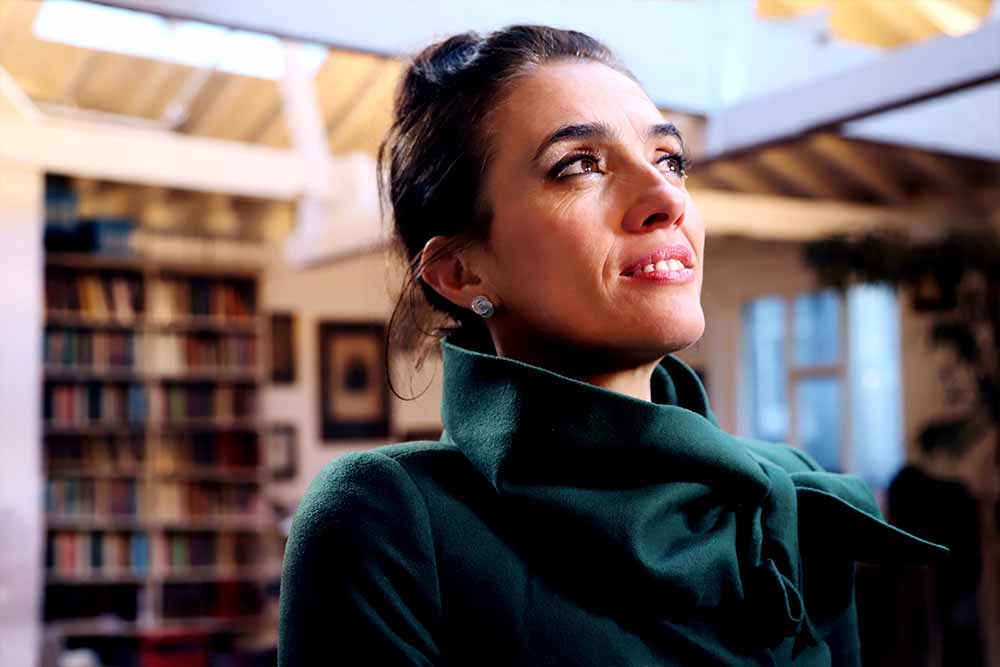


What was the moment that made you leave?
Katia Ricciarelli held a masterclass in Mantua, Italy, that was open to all countries, so I went. I had big dreams and empty pockets. It was so difficult, but my dream was very important and big that it’s more difficult not to do it than to suffer while achieving it. I worked as a babysitter, I did what I had to do to support myself. Getting my documents sorted was nightmare, but I eventually enrolled in Santa Cecilia in Rome.
Madama Butterfly, La Traviata and Suor Angelica, what has continuously attracted you to these women?
All women have a strength that I admire, but as a child I saw the model of the Albanian woman. The way they sacrificed and gave to protect everything they loved with their lives and somehow it’s inside me. In these characters I see that model of women who sacrificed everything, it’s unconditional. We are an archive of feelings from certain moments in our lives and that’s how I connected with these roles – it was very natural.
You go back to bel canto all the time, why?
Long lines, beautiful melodies and the technique and orchestration is so smooth. It allows you to paint with the voice. As a lyric soprano it’s like a balm for my vocal chords. I love it so much. Once I can find my dramatic heroines, I’m happy.
Bel canto is everywhere, it’s in Puccini, Verdi and even Wagner. I sing many styles, but it has helped me so much by giving me lots of information and clues. After this period the music became stronger and more dramatic, it evolved. Bel canto is the beginning and it teaches you how to sing flawlessly as it’s much more natural for the voice because it’s like a vocal gym. You strengthen everything in bel canto.
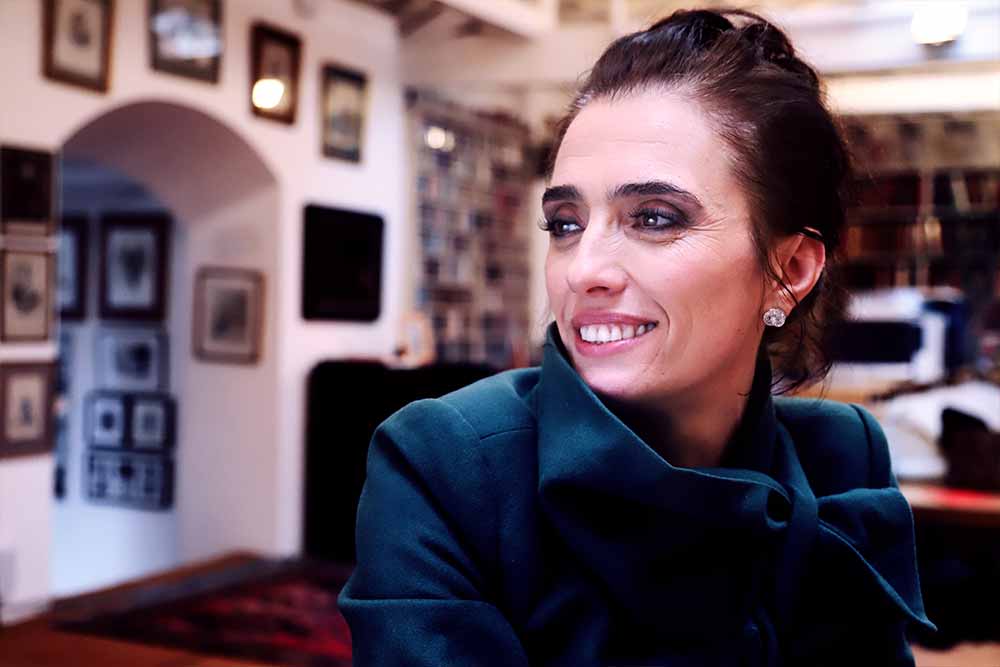

On a show day what is your routine?
Whether it’s a performance day or not, I wake up and do my breathing exercises. No matter if I’m sick or didn’t sleep, it’s all about the muscles and the stamina. The second I open my eyes I’ll check the voice is still there.
On show day I get there two hours before my call time so I can absorb the energy. I need to let out the reality of everyday and feel the energy of the stage. I enter another world and I need to work hard to achieve that. I feel so different everyday, so I warm up and see where my voice is in that moment. Then I’ll go into makeup and costume, but I won’t speak at all. My nerves will be building, even to the point where I’m about to walk on stage I’ll fear that I’ll forget my words, it’s crazy.
But if you lost that fear, would that make you even more nervous?
Absolutely, I would feel like I wasn’t giving anything. It’s a comfort that I’m scared and you have to have that – it’s like a candle, you need the fire. You get better at controlling it, but you always need that fire and if it’s not there you’re in big trouble.
You have worked frequently with Opera Rara, what do you enjoy the most about the company?
This industry is a difficult place and in Opera Rara it’s like coming into a family. It feels protected. To perform unknown operas is a privilege. Puccini is known for Madama Butterfly, Suor Angelica and so on, but in his first opera Le Willis you get to see where he began. It’s an opera written by a young composer and you can see little hints of what was to come in Tosca and his other big hits. If you ignore the story you’re never going to understand or give that understanding to the public. There’s no stress working with Opera Rara, the art comes first, which is how it’s supposed to be. The company brings wonderful gifts to the opera world – they make you a better musician and a better human being.
I need to let out the reality of everyday and feel the energy of the stage. I enter another world and I need to work hard to achieve that."

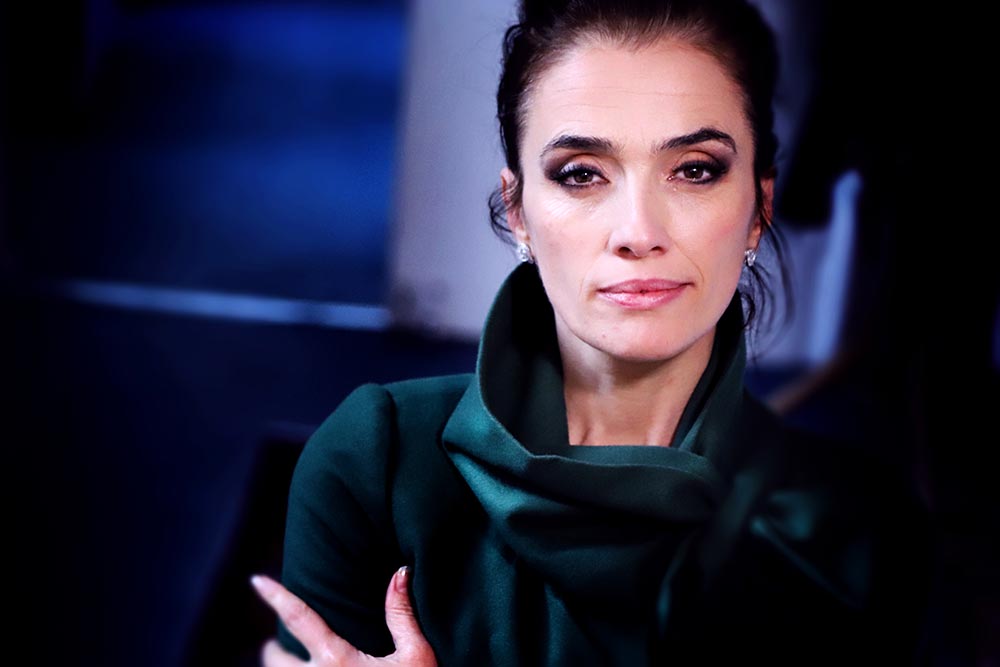


You’re returning to the Royal Opera House for La Traviata in January, what are you looking forward to about this production?
La Traviata, always. The dream started with this work. My London debut in 2008 was La Traviata at the Royal Opera House and I was a jump-in, so it’s nice to have more notice this time (laughs). The connection with the London audience is very important to me and since my debut I feel I have grown so much with a completely new palette of emotions – I can’t wait!
You adore Maria Callas, why?
It could be the mediterranean or balkan way, but everything is louder. When you love and hate, everything is louder – the killing and the giving. She went beyond the voice and beyond the notes. She gave the colours of her soul to her voice and she was like an animal on stage. I think you have to be a little damaged to access the depth necessary for this job and the challenge is to learn how to channel that. She did, and I was lucky enough to learn how to do the same.
What is it about singing that keeps you addicted?
I suppose I’m addicted to giving, emotionally speaking. When you give there’s an exchange of energy and I live for that.
You have an energy that’s immediately obvious when you walk in the room that brings the best out of everyone, I’ve just watched it happen in myself and everyone else here.
(Laughs) When you’re creating opera it’s a complete team process to tell a story. You have a couple of hours to communicate this story and we must all be connected to make it a richer experience. If we think individually, and don’t care about what our colleagues are singing, the art is dead. It’s teamwork. We take and give energy from each other. It’s beautiful. You can feel positive energy and negative energy. I feel it like a cat.
To find out more about Ermonela Jaho see: www.ermonelajaho.com
All images displayed in this article are subject to copyright.
Share this article


